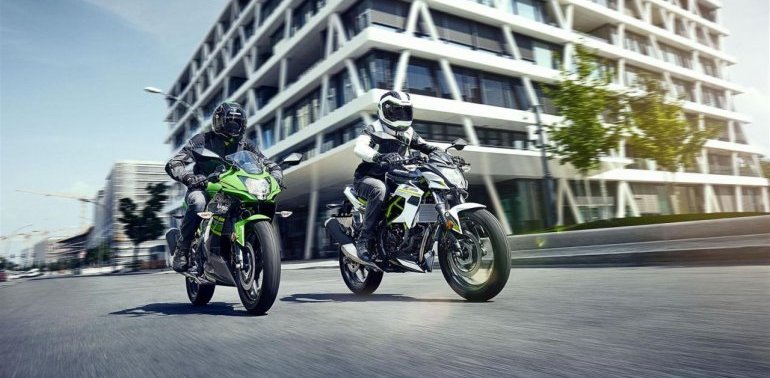New Kawasaki Ninja 125 and Z125 unveiled at INTERMOT 2018

The motorcycles will compete with the likes of the KTM RC125 and the 125 Duke in the European markets.
The Kawasaki Ninja 125 is a fully faired motorcycle while the Z125 is a naked roadster. Unlike the bigger Ninja motorcycles, the 125cc model features a single-pod headlight instead of a dual unit. Above the headlight is a tall windshield that is aimed to offer protection from windblasts. Behind the windscreen is a clip-on handlebar that offers sporty ergonomics. The motorcycle features the KRT graphics that is also seen on the bigger Ninja motorcycles.
Apart from the full fairing design, there are no other major differences. Thus, the Ninja 125 and the Z125 have the same tubular trellis frame, box section swinging arm, a chiselled fuel tank and a split step-up seat. The exhaust and alloy wheel design, too, are similar on both the motorcycles. The headlight design, unlike the bigger Ninja/Z-Series motorcycles, is identical. The Z125 features a flat, single-piece handlebar that offers upright and city-friendly ergonomics.
Suspension and braking setup is similar too and both motorcycles feature 37 mm conventional telescopic front forks and a preload-adjustable monoshock at the rear. A petal-type disc brake on both ends provides the stopping power. At the front, there's a 290mm single disc, while at the rear there's a 220mm single disc. The motorcycles get dual-channel ABS as standard.
Mechanical specifications are identical too. Thus, the Ninja 125 and Z125 use a 125 cc, single-cylinder, liquid-cooled, DOHC engine that is tuned to deliver a healthy 14.8 hp and 11.6 Nm of torque. This engine is mated to a 6-speed transmission. It is claimed to deliver a strong mid and high-range performance.
There is a marginal difference in the kerb weight as the Ninja 125, with its full fairing design, tips the scale at 148 kg while the Z125 weighs 146 kg.
Nouvelles connexes


